Are bearded dragons good pets? That’s the question on everyone’s mind!
After all, they’re cute, charismatic, and love to be handled. Seems like everybody and their brother has one of these scaly babies slinking around in the corner of their home office.
But, hold on! Before you run off to Amazon and irresponsibly purchase the Taj Mahal of terrariums, let’s take a step back and answer the question at hand:
Do bearded dragons make good pets anyway?
It’s time to find out, once and for all.
Pros & Cons
Before you decide if a bearded dragon is right for you, it’s important to consider both the pros and cons of having one. Like any long-term relationship, it’s important to see the full picture before making a commitment (pet divorce court is uglier than you can even imagine).
So let’s take a look at some of the advantages and disadvantages of owning a bearded dragon as a pet — then it’s up to you to decide!
Positives
1. Bearded dragons are low-maintenance pets, requiring less space and care than other reptiles.
2. They can be easily handled and most bearded dragons will learn to recognize their owners over time.
3. They generally have a long lifespan of up to 10 years or more when properly cared for in captivity.
4. Their docile and easy going nature that makes them great pets for all ages, including children and adults alike!
5. With the proper diet and environment, bearded dragons require fewer vet visits than other animals, making them more cost-effective in the long run
Negatives
1. They require a specialized diet and specific housing to stay healthy, which can be time-consuming, expensive, and annoying to find.
2. They can carry parasites and disease, especially salmonella
3. They’re territorial with other bearded dragons. Cohabitation is not always recommended as it could result in fights or stress for both animals.
4. Their poop has an unappealing smell, requiring regular enclosure cleaning
Why are bearded dragons good pets?
Many prospective pet owners are looking for the best of both worlds: a pet that’s low-maintenance, but still interesting and engaging. Bearded dragons fit the bill perfectly!
While they’ll never play fetch with you or learn to water ski, a bearded dragon can still be an entertaining pet, just ask anyone who owns one! Plus, they’re a lot less work than dogs, cats, or water-skiing squirrels.
They’re well behaved
Bearded dragons can bite, but it’s usually only out of self-defense if they feel threatened or scared. That being said, their bite is mild compared to other lizards and snakes, especially when they are young (which happens to be the stage of life when they are most likely to bite).
In general, they do not make a lot of noise and are quite content just to lounge around or explore their environment. As long as they have access to food, water, and some toys to play with, bearded dragons are about as chill as they come.
They’re smart
Intelligence may not be the first thing to come to mind when you think reptiles, but a domesticated bearded dragon will display some smart behavior, especially when trained and bonded with over time.
Beardies learn to recognize their caregivers over time and can even develop a unique bond with them. This is why you may have seen so many videos of bearded dragons sitting on their owner’s lap and rubbing up against them (like cats, only with more spikes and less contempt).
Some will even learn basic tricks, like coming when called or anticipating feeding.
Bearded dragons are generally curious about the world and enjoy exploring. It’s possible to train them to go for walks on a leash!
They’re affordable
The average bearded dragon will cost you about $40 to $600. Rarer varieties will cost more than that, while most pet stores and local breeders have young beardies available at lower end of that range. It’s considerable less than you’d spend on many other pets.
Even with an initial cost of buying a bearded dragon that may seem steep (once you buy the basic enclosure setup and starter supplies), they’re actually quite affordable in the long run.
Not only are bearded dragons relatively low maintenance pets, they require far fewer resources than larger animals like cats or dogs. You don’t need to worry about buying expensive food or litter, and veterinary care for bearded dragons is often cheaper as well.
Their diet is easy to maintain and consists mostly of insects and house hold fruits and vegetables. This makes it easy to stock up on necessary ingredients at your local grocery store — no special trips needed.
They’re easy to care for
Unlike cats or dogs, bearded dragons don’t need to be walked, bathed, or groomed. Instead, they just need their habitat to be kept clean and their diet monitored.
Compared to other reptilian pets, like tortoises and chameleons, bearded dragons are not too finicky about their enclosures or food. They’re quieter than birds, less dangerous than snakes, and more fun than a pet fish.
Plus they’ve been known to get along with your furry friends! Dogs and bearded dragons can coexist peacefully , provided your canine is not aggressive or overly energetic.
They’re a good size
While they won’t always stay as tiny and cute as they are when they’re babies, bearded dragons only grow to a moderate size, usually between 16 and 24 inches in length. That makes them an ideal pet for both large and small living spaces — even apartments!
Of course, you’ve probably heard nightmare stories about boa constrictors and iguanas that grow to untenable proportions, leaving their owners surprised and overwhelmed.
Thankfully, bearded dragons stay a modest and predictable size, only requiring a single moderate-sized tank for their whole life.
They eat a basic diet
Bearded dragons are omnivores, meaning that their diet is composed of both plant- and animal-based foods.
This simple diet means that bearded dragon owners never have to worry about preparing complicated meals involving specialized ingredients or processes — just toss in some nutritious crickets with some veggies, and your bearded dragon will be happy as can be!
They’re good for kids & families
Unlike most other pets, bearded dragons are relatively hands-off and happy to stay in a well-kept enclosure.
They don’t require too much interaction and can happy coexist with their owners without any fuss.
This makes bearded dragons an ideal pet for families with young kids who may not be ready to take care of a more demanding pet.
Bearded dragons are also fairly easy to maintain, so parents need not worry about their children inadvertently creating unhealthy living conditions for their beloved bearded dragon pal.
Bearded dragons have surprisingly outgoing personalities that lend themselves to amusing antics. They love basking under lamps or eating crickets off your finger — activities that often prove to be quite entertaining for kids.
Bonding with bearded dragons can also help children become more compassionate and less fearful of animals in general, as bearded dragons are not typically aggressive when handled properly.
They have a long life expectancy
Bearded dragons have been known to live up to twelve years in captivity. This makes bearded dragons an ideal pet choice for those who are looking for a longer-term companion.
As bearded dragons get older, they become more docile and less active at night, becoming easier to take care of as time passes.
With proper and consistent care, they are hardier than most other reptiles, reducing the number of trips to the vet and the likelihood of premature terminal illness.
Why you shouldn’t get a bearded dragon
Despite all their many winning characteristics, bearded dragons are not be the best choice for everyone. In this section, we will explore why bearded dragons might not be suitable for certain situations or people (and why you might be better off sticking with that gold fish you won at the fair). Bearded dragons are good pets for some people, but not everyone.
They stink
Bearded dragons have an odor which some people find unpleasant. This is because, like any animal, they poop frequently.
This means that the enclosure will need regular cleaning and fresh bedding. Keeping up with this task will help reduce the smell of the enclosure and your pet, leading to a happier coexistence.
If you are sensitive to smells, you may find the chore of cleaning out your beardie’s enclosure to be unpalatable. In which case, you should either invest in a quality clothespin or stick to your pet rock.
They’re solitary creatures
Bearded dragons are notoriously solitary animals. While they may enjoy the occasional interaction with you, they don’t need a second bearded dragon to be happy and content. This means that bearded dragons prefer to live the life of a bachelor (or bachelorette).
Here’s the rule of thumb:
Never put two males together in the same tank. Female-female or male-female pairings can work, however, with the latter, you should be mindful of the possibility of reproduction.
They need special lighting
These little guys need special lighting to keep them happy and healthy. If you’re considering owning a bearded dragon as a pet, you’ll have to make sure you can provide a good quality UVB light, as well as a basking spot.
UVB lights can be expensive, and the process of setting it up correctly can be daunting, but they’re a vital part of ensuring your bearded dragon has a comfortable bungalow to call home. Furthermore, UVB aids in digestion and metabolize, helping to prevent metabolic bone disease (a common and serious condition for domesticated reptiles).
They come with health risks
Bearded dragons can be susceptible to different types of health problems including metabolic bone disease, intestinal parasites and respiratory infections. While these conditions are treatable, they can be costly to manage and require regular veterinary check-ups.
Additionally, they come with some health risks for their human roommates as well. As they are known carriers of salmonella, bearded dragons should not be handled by small children or anyone with a weak immune system. Thorough hand-washing and sanitization after handling are a must.
It should go without saying, but the risk of salmonella exposure also means a bearded dragon should never come into contact with food preparation areas (though a beardie remake of Ratatouille would be compelling cinema).
Should I get a bearded dragon?
Bearded dragons can be wonderful pets for those who are ready to commit to taking care of them. They can provide years of companionship and entertainment, as they have pleasant personalities, playful dispositions and inquisitive natures.
Bearded dragons also require less space than some other reptiles and can be fed a variety of easily accessible foods.
However, bearded dragons come with many unique responsibilities, and they may not be the right pet for everyone. They are animals that require special habitats, specific care, and some unique concerns.
Before deciding to own any pet, it is important to understand the full scope of caring for them. Do not make a rash decision, as this can create unwanted years of stress and unhappiness for you and the animal.
If you’re ready to provide the necessary commitment and care that bearded dragons require, then they might just be the perfect pet for you!

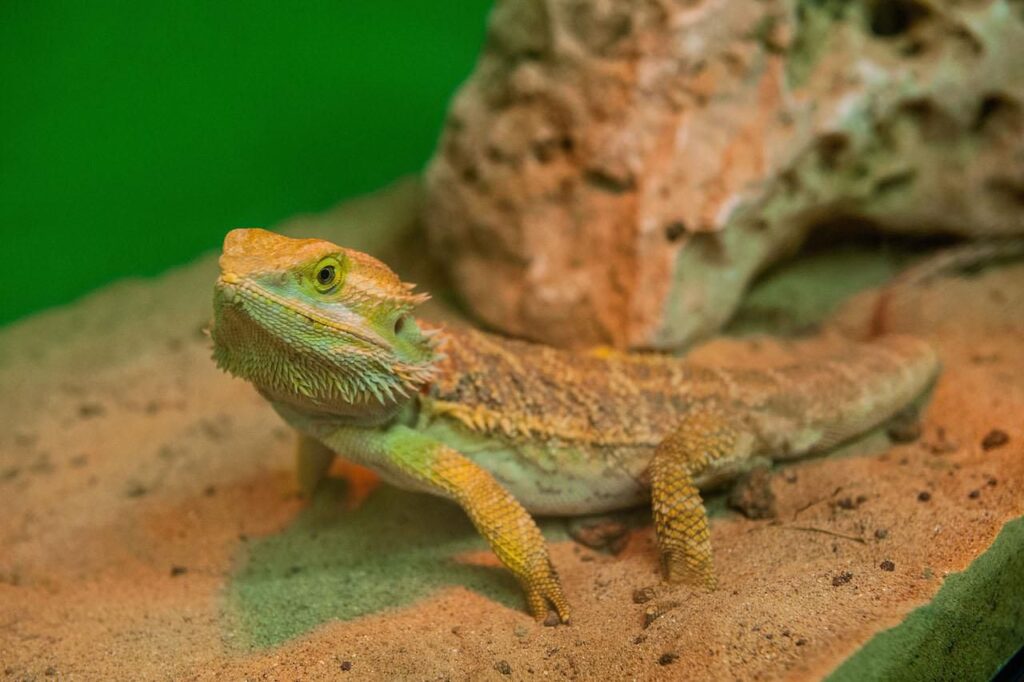
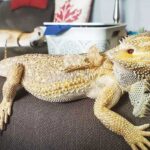
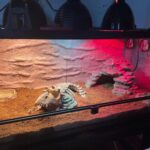
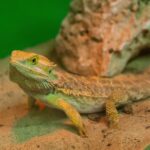
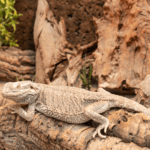
:max_bytes(150000):strip_icc()/13-f9fc54bc64854d20b43e00db91a9cb16.jpg)